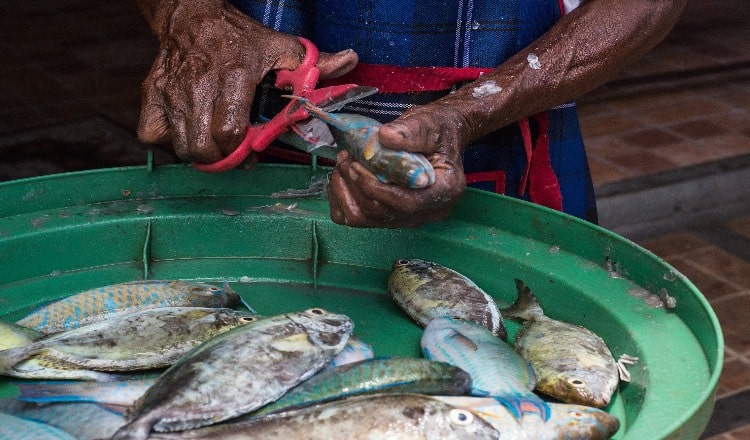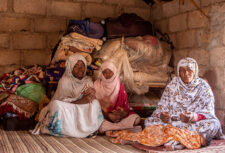This International Migrants Day, Cristina Patriarca, Safe Migration Officer, highlights the link between migration and modern slavery, examining how we’re working to protect migrant workers overseas.

The numbers are clear: there are more people experiencing slavery today than at any other point in history. Despite the challenges posed by the COVID-19 pandemic, international migration continues, and this means continued vulnerability of migrants to modern slavery. In fact, as the 2017 Global Estimates Report suggests, “a large share of modern slavery can be traced to migration.”
Many factors make migrants particularly vulnerable to modern slavery. These include gaps in legal and social protections that can be experienced due to isolation and marginalisation, a lack of attention of authorities towards issues surrounding modern slavery and a lack of enforcement of existing legislation aimed at protecting potential victims. People with limited or no access to networks, accurate and verified information or resources to survive are also at incredibly high risk.
For migrant workers in particular, who in this context we identify as those individuals who live and work in a place different to that of origin, vulnerability to modern slavery is exacerbated by employment in sectors where they are easily kept out of sight. This can be at sea or in garment factories; or where they are hard to access, as is the case of private domestic workers. Migrant workers are also at risk when they are excluded from access to legal protections granted to national workers and are unable to join a union.
Additional factors of vulnerability include when a migrant:
- Has undocumented status
- Has a work visa tied to their employer
- Is less well-integrated and faces language barriers, and/or lack fundamental information on protection mechanisms available to them in case of need
Under such circumstances, workers are vulnerable to exploitation from unscrupulous employers and criminal recruitment agents. The lack of safe and legal migration pathways and the charging of recruitment costs both make migrant workers more vulnerable to modern slavery, particularly forced labour and debt-bondage.
COVID-19 has made migrant workers ever more vulnerable to modern slavery, with many people suddenly finding themselves unemployed, unable to repay their recruitment costs, and without any safety net to rely on. As migrant workers lose their income and become more indebted, their families become more vulnerable too and at increased risk of exploitation and abuses.
Many of those who were able to keep their jobs during the pandemic were exposed to long working hours, increased workload and unsafe working environments. The sudden rise in demand for the production of safety equipment against COVID-19, such as gloves and PPE masks, also increased the exposure of migrant workers to forms of modern slavery, such as in the case of Bangladeshi migrant workers working in a rubber gloves factory in Malaysia.
Anti-Slavery International: protecting migrant workers

Since 2019, we have been working to address migrant workers’ vulnerabilities to modern slavery in supply chains by creating a platform for protection and access to remedy.
With the support of local partners in countries of origin (Bangladesh and Madagascar) as well as destination (Mauritius), we have been working to improve the knowledge and understanding of migrant workers on their rights at work, the risks they can face during their migration journey and possible avenues for help.
In collaboration with the local partner, Confédération des Travailleurs des Secteurs Publique et Privé (CTSP), and with the support of ASOS and IndustriALL Global Union, we’ve also contributed to the creation of a Migrant Resource Centre in Mauritius, where migrant workers can present their work grievances and find support to their resolution, a key step to improve access to remedy.
Engaging employers in reducing migrant workers’ vulnerability to modern slavery is crucial. Over the next months, we will continue building on what we’ve learnt from our work and advocate for greater brand engagement on the protection of migrant workers in supply chains, to see their rights protected and vulnerability to modern slavery eliminated.
We will keep striving to ensure that migrant workers remain protected from modern slavery and that survivors have the right access to the resources they need to face the future.
This International Migrants Day, it is critical that we remember that migration brings immense challenges, as well as opportunities. We are working to eradicate is the risk of modern slavery.
Join our movement today and help us support migrant workers overseas.




